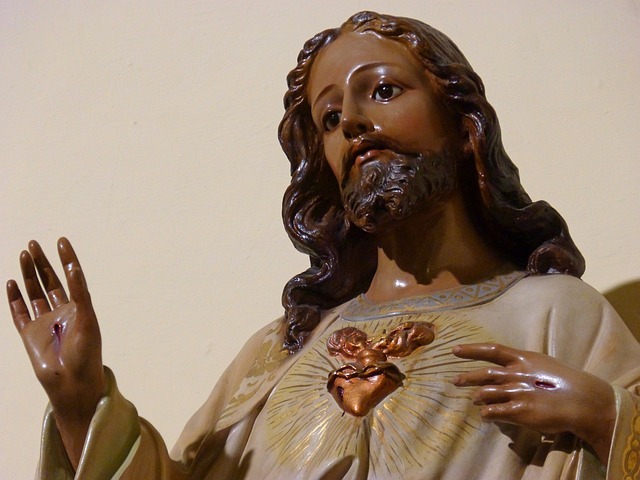
Role of Miracles in Christianity
Miracles are an integral part of the Christian faith and history. They are extraordinary events that defy natural explanations and showcase the supernatural power of God. From the miracles performed by Jesus during His earthly ministry to the accounts of miraculous interventions throughout the Bible, these extraordinary occurrences play a significant role in shaping and affirming the Christian worldview. In this article, we will explore the nature of miracles, their purpose, and their relevance in the lives of believers today.
Defining Miracles: Beyond the Natural Order
Miracles are divine interventions that disrupt the natural order and demonstrate God’s power and presence. They go beyond the ordinary course of events, suspending or transcending natural laws. Miracles often manifest as physical healings, deliverances from danger, supernatural provisions, and the transformation of natural elements. These extraordinary occurrences serve as signs and wonders, drawing attention to the reality of God’s kingdom and pointing to His divine authority.
The Purpose of Miracles: Revelation and Validation
One of the primary purposes of miracles is to reveal God’s nature and character. They provide glimpses into the divine realm, reminding us of God’s sovereignty and His desire to intervene in human affairs. Miracles serve as powerful demonstrations of God’s love, mercy, and compassion, revealing His desire to bring restoration, healing, and salvation to humanity. In the miracles of Jesus, we witness the coming of God’s kingdom in action, as He liberates people from sickness, demonic oppression, and even death itself.
Miracles also serve as a means of validating the message and ministry of those called by God. Throughout the Bible, we see miracles accompanying the work of prophets, apostles, and other servants of God. These extraordinary signs authenticate their authority and affirm the divine origin of their message. Miracles act as a confirmation that God is with His chosen messengers and that their words carry divine weight and significance.

The Role of Miracles Today: Faith and Encounter
While miracles were prominent during the time of Jesus and the early church, their role in contemporary Christianity is a topic of much discussion and interpretation. Some argue that miracles ceased after the apostolic era, while others believe that miraculous interventions continue to occur in the lives of believers today. Regardless of one’s theological stance, it is crucial to recognize that miracles are not mere spectacles or acts of magic. Instead, they are divine encounters that draw individuals into a deeper faith and relationship with God.
Miracles, when they occur, serve as catalysts for faith, inspiring believers to trust in God’s power and provision. They remind us that nothing is impossible for Him and that He is actively involved in our lives. Miracles can also act as wake-up calls, shaking us out of complacency and stirring us to pursue a deeper encounter with the living God. They remind us of the supernatural dimension of our faith and challenge us to step out in faith and obedience.
Furthermore, understanding the role of miracles requires us to embrace a balanced perspective. While miracles are extraordinary occurrences that showcase God’s power, they are not the sole basis of our faith. Our faith is grounded in the person of Jesus Christ, His life, teachings, death, and resurrection. Miracles serve as confirmations of the truth and authority of the Gospel but should never be pursued as an end in themselves. Instead, they should lead us to a deeper understanding of who God is and His redemptive plan for humanity.
In our pursuit of understanding miracles, it is essential to avoid extremes. On one hand, we should not dismiss or minimize the possibility of miracles, as doing so limits God’s power and intervention in our lives. On the other hand, we should not idolize or seek miracles as a means to an end. Our focus should always be on the Giver of the miracles rather than the miracles themselves. Our faith should rest in God’s sovereignty, trusting that He knows what is best for us and that His plans and purposes will prevail.
Conclusion
In conclusion, exploring the role of miracles in Christianity reveals the supernatural power and intervention of God in our lives. Miracles are not mere coincidences or random acts; they are intentional demonstrations of God’s love, mercy, and sovereignty. While we may grapple with questions and differing interpretations regarding the frequency and nature of miracles, what remains unchanged is the fact that God is a miracle-working God. As we deepen our faith and seek a closer relationship with Him, let us approach the subject of miracles with awe and reverence. May we remain open to His miraculous interventions, trusting in His wisdom and timing, and embracing the reality that nothing is impossible for Him? As we walk in faith, may we bear witness to His supernatural power and share the stories of His miraculous works, inspiring others to believe and experience the transforming presence of our miraculous God.
Miracles hold a significant place in the Christian faith, representing the extraordinary power and intervention of God in human affairs. While debates about their frequency and occurrence continue, it is essential to approach the subject of miracles with openness and humility. Regardless of our individual experiences or theological perspectives, the overarching message remains clear: God is a God of miracles. Miracles point us to the reality of His kingdom, reveal His character, and serve as a catalyst for faith and encounter.
As believers, let us remain open to the possibility of miracles, both in our personal lives and in the world around us. Let us trust in God’s sovereignty and acknowledge that He can work in extraordinary ways. Whether we witness a miraculous intervention or not, may our hearts be filled with awe and wonder at the supernatural power of our God, and may we live in a constant state of expectancy for His divine interventions.
Ultimately, as we seek to understand the role of miracles in Christianity, let us approach the subject with humility, reverence, and a desire to align ourselves with God’s will. Whether we personally witness or experience a miracle or not, may we hold fast to the truth that God is a God of miracles according to BibleKeeper.com. Let us remain steadfast in our faith, knowing that even in the absence of extraordinary signs and wonders, His presence, guidance, and love are constant. And may we always be open to His miraculous work in our lives, trusting that He can do immeasurably more than we can ask or imagine.
